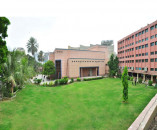Sindh seeks NAB’s share of black money
Cabinet wants Rs1.59b collected under VR scheme in past decade

The Sindh cabinet has decided to urge the National Accountability Bureau (NAB) to remit Rs1.59 billion deducted at source of the black money it recovered through its voluntary return (VR) scheme over the past 11 years.
At a meeting on Tuesday, the cabinet was apprised that the national anti-graft watchdog recovered Rs6,382,287,659 under the VR scheme and in other corruption cases from Sindh. Of this amount, it gave Rs4,786,671, 308 back to Sindh and retained Rs1,595, 571,920 or 25 per cent.
Under Section 25 of the NAB Ordinance, the amount deposited by an individual, who enters a plea bargain with the watchdog or voluntarily returns embezzled funds, shall be transferred to the federal or provincial government or the relevant financial institution, bank or the organisation within one month. However, the cabinet was told that NAB retains 25 per cent of such funds to distribute to officials as a reward for service and the well-being of the department.
The meeting was told that the Supreme Court, in a suo moto case in 2016, and the Balochistan High Court, in a constitutional petition in 2014, had expressed concern and directed that the recovered funds be deposited into the relevant public accounts of the federation and the provinces. According to the cabinet, the apex court had decided that the anti-graft bureau would deposit the amount. Based on this, the cabinet has decided to request NAB to remit Rs1.59b to the Sindh government that was deducted at source at the rate of 25 per cent.
Regulating telehealth
During the meeting, the provincial health department presented the Sindh Telehealth and Telemedicine bill 2021 before the cabinet.
READ JI terms Centre, Sindh govts’ performance disappointing
The meeting was told that telemedicine has several benefits, which increase interventions such as faster access to services. It can reduce costs and efforts of people, especially those from remote areas, who are compelled to travel long distances for treatment.
Sindh Health Minister Dr Azra Fazal Pechuho said that the proposed legislation would help regulate the practice of telemedicine and ensure standard guidelines.
Under the bill, a registered medical practitioner (RMP) or healthcare service organisation can provide telemedicine consultation. The RMP would be entitled to practice telemedicine or telehealth after a prescribed course. The RMP would inform the patient of his or her qualification by providing PMC registration and area of specialisation.
Telehealth registered health professionals shall provide health services to the community for the promotion of good health practice for education, the meeting was told.
The cabinet approved the bill and referred it to the Sindh Assembly.
The meeting also approved the rules for the Sindh Allopathic System [Prevention of Unauthorised Use] Act 2014 to prevent the misuse of the allopathic - conventional, modern or scientific medicine - system of medicine. The cabinet also approved Sindh Blood Transfusion Authority regulations.
Levy on bottled water
Accepting the request of the Karachi Water and Sewerage Board (KWSB) the cabinet approved a levy of Rs1 per litre on bottled water and beverage companies in line with the Punjab government.
Lawyers welfare, protection
Moreover, the cabinet approved the Sindh Lawyers Welfare and Protection bill 2021 to promote the well-being of advocates practicing in Sindh. Under the proposed legislation a fund for the welfare of lawyers would be established. The bill was referred to the assembly.
Local govt fund
Meanwhile, the cabinet approved a proposal by the Sindh local government department to establish a fund at the local government level to pay salaries of Sindh Council Unified Grade (SCUG) cadre officers awaiting posting there.
Sindh Chief Minister Syed Murad Ali Shah said that the local government department should develop a system such that employees reporting to the Sindh Local Government Board (SLGB) for further posting are able to draw their salaries.
Besides, the cabinet approved a proposal to bring the service structure of sub-engineers BS-11 (SCUG) of local government at par with other departments such as irrigation, works and services, public health engineering department and education works.
Annual development plan
Moreover, the cabinet was apprised that there were 1,646 on-going schemes launched at the cost of Rs138.38b against which Rs38.71b had been released in the current fiscal year.
The cabinet was apprised that 101 acres of land was provided to the Karachi Metropolitan Corporation (KMC) for the establishment of a slaughterhouse. The KMC had established one in Bhains Colony but a mechanical abattoir was not functional there.
The provincial government has approved a scheme to establish a bio-gas plant for the Bus Rapid Transit (BRT) Red Line on the land in Bhains Colony where the slaughterhouse was established, the meeting was told.
The cabinet decided to resume the slaughterhouse land for the bio-gas plant. The CM directed KMC Administrator Murtaza Wahab to prepare a scheme for a slaughterhouse for which the Sindh government will provide land.
Published in The Express Tribune, August 11th, 2021.


















COMMENTS
Comments are moderated and generally will be posted if they are on-topic and not abusive.
For more information, please see our Comments FAQ